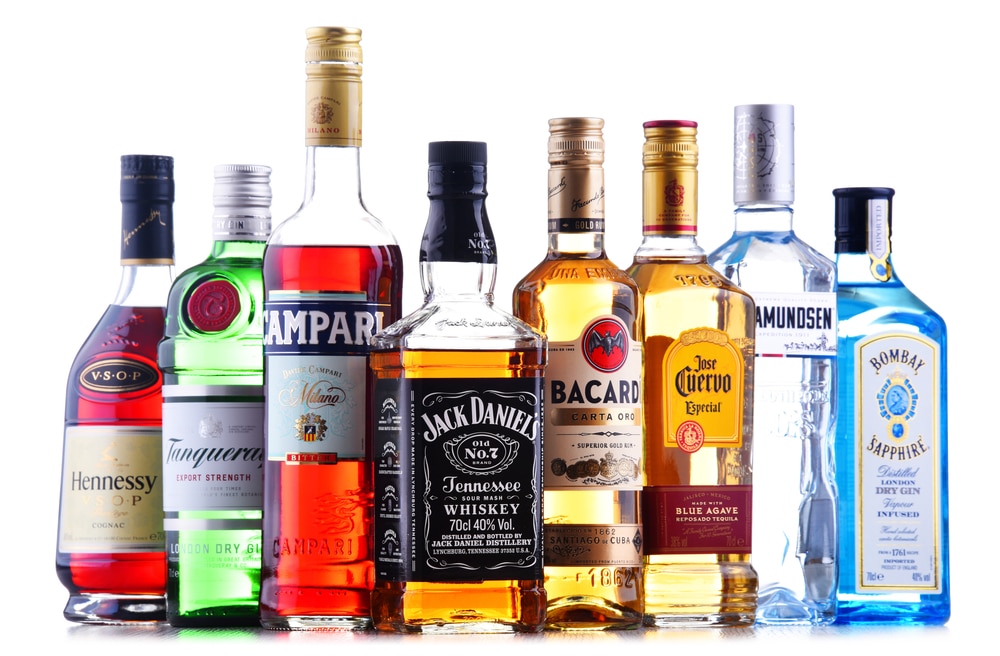Diageo is a leading global Scotch whisky distiller and manufacturer of premium alcoholic beverages. Diageo’s history includes a diverse legacy spanning hundreds of years and features some of the most iconic brands in the world. Starting with a merger of two giants in the food and drink industry, today Diageo boasts a portfolio that includes multiple celebrated names such as Johnnie Walker, Smirnoff, and Guinness.
For business owners, marketers, or anyone intending to learn from successful business stories, Diageo’s history offers insight into how combining tradition and innovation can deliver success. Here at Business2Community, we’ve analyzed a range of sources to provide a comprehensive rundown of Diageo’s evolution to become a global leader in the drinks industry.
A History of Diageo – Key Dates
- Diageo was founded in 1997 through the record-breaking merger of Guinness plc and Grand Metropolitan.
- In 2000, Paul Walsh took over as CEO and transformed Diageo into a streamlined premium drinks business, ensuring the company’s products were all in its key markets.
- In 2012, the company announced a £1 billion ($1.59 billion) investment in Scotch whisky production over five years.
- Paul Walsh stepped down from his role as CEO in 2013, to be replaced by Sir Ivan Menezes.
- Diageo opened the doors of Johnnie Walker Princes Street, an eight-floor visitor experience in 2021 – the centerpiece of a £185 million ($253 million) investment in Scotch whisky tourism in Scotland.
Who Owns Diageo?
Diageo plc is a public company with a primary listing in London. Diageo is on the FTSE 100 Index and also has a secondary listing on the New York Stock Exchange. In the UK, around 72% of Diageo shares are owned by institutional investors, such as Blackrock, Inc. (8.4%), MFS Investment Management (5%), and The Vanguard Group, Inc. (4.7%).
Around 27% of shares in Diageo are owned by the general public. As of July 2024, Diageo’s net worth was estimated to be around £55.1 billion, or $71.07 billion.
Diageo is a British alcoholic beverage company, headquartered in London, England. It’s a major distributor of Scotch whisky and other spirits around the globe. Diageo owns many distilleries that produce more than 100 individual brands of single malt and blended Scotch whiskey, including:
- Johnnie Walker
- J&B
- Grand Old Parr
Diageo produces several other well-known brands, such as Baileys Irish Cream, Gordon’s Gin, Smirnoff Vodka, and the iconic Irish stout, Guinness.
Who is the Diageo CEO?
Debra Crew became Chief Executive of Diageo plc in June 2023. Crew boasts an impressive career in the industry having worked for several high-profile food and beverage brands such as Kraft Foods, Nestle, and PepsiCo. She also served in the US Army during the 1990s rising to the rank of captain.
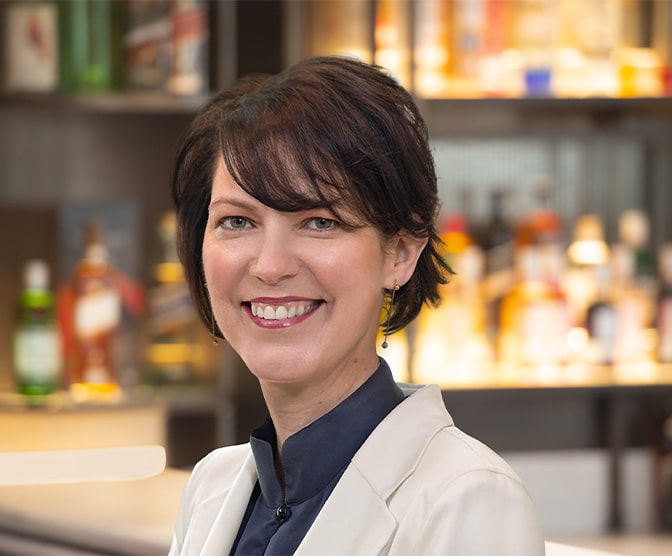
Crew began her tenure at Diageo a month early after her predecessor, Sir Ivan Menezes, passed away before he was able to retire. Menezes joined Diageo in 1997 when the firm was first formed with the merger of Guinness and GrandMet. He held several senior roles before being appointed chief executive in 2013.
Menezes is largely credited with making Diageo the company it is today. In January 2023, he was awarded a Knighthood for services to Business and to Equality in The King’s 2023 New Year Honours List.
You can find all the CEOs since Diageo was formed below:
| CEO | Tenure |
| Debra Crew | 2023-present |
| Sir Ivan Menezes | 2013-2023 |
| Paul Walsh | 2000-2013 |
| John McGrath | 1997-2000 |
Growth and Development of Diageo
While Diageo plc was founded in 1997, many of its iconic brands can be traced back hundreds of years. Here we run through the history of the two companies that merged to create Diageo – Guinness and GrandMet – as well as taking a detailed look at everything that’s happened since their merger.
Guinness: 1759-1997
In December 1759, a young Irishman named Arthur Guinness signed a 9,000-year lease on the St. James’s Gate Brewery in Dublin, Ireland. He began producing a range of beers and ales which quickly became successful. However, in the 1770s, he began brewing a new type of beer known as porter. Guinness porter was so in demand that by 1799, Arthur decided to focus exclusively on porter production.
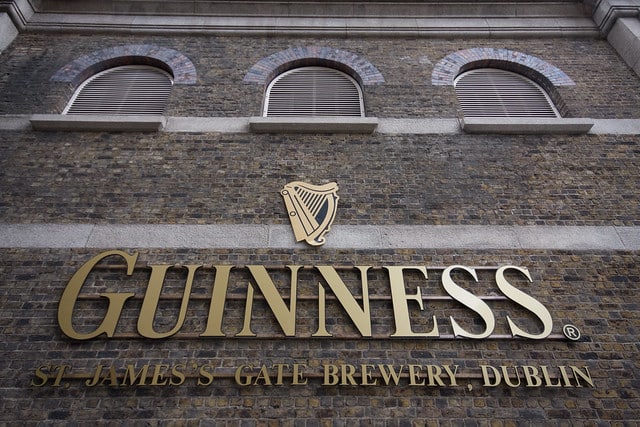
In 1803, Arthur died, leaving the brewery to his son who transformed it into the largest brewery in Ireland. He also developed a new porter recipe for the British market, which we know today as Guinness Original. By the end of the twentieth century, Guinness was brewed in 49 countries and sold in more than 150.
Grand Metropolitan: 1934-1997
Grand Metropolitan plc was a British leisure, manufacturing, and property conglomerate. GrandMet began as a hotel business in 1934 and was first listed on the stock market in London in 1961. It became known as Grand Metropolitan Hotels Ltd in 1962.
The company diversified into catering and moved into the brewing business during the 1960s and 1970s when it acquired businesses that owned Baileys Irish Cream, Croft sherry and port, Gilbey’s gin, Justerini & Brooks, Piat wine, and the European rights to Smirnoff vodka. It became Grand Metropolitan in 1973.
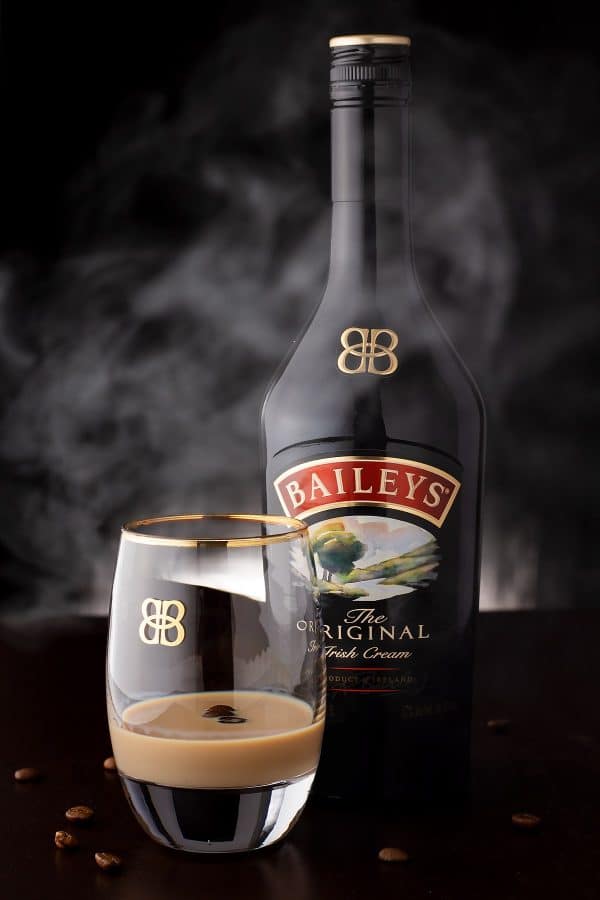
During the 1980s, GrandMet began to focus on core business areas, moving into fast food and betting with the acquisition of the Pillsbury Company, the Burger King chain, and William Hill bookmakers, and selling off its catering arm and many of its breweries.
1997-2010: Diageo Consolidates Position as a Premium Alcohol Producer
In May 1997, Guinness plc and Grand Metropolitan announced a £23 billion ($37.74 billion at the time) merger to create GMB Brands. The name was changed to Diageo plc by the time the merger – the biggest in UK corporate history – took place. Diageo stock began trading in London in December 1997. John McGrath, who had been serving as CEO of GrandMet, became Diageo’s first chief executive.
At the beginning, Diageo had four main business units:
- United Distillers & Vintners (UDV): UDV brought together many of Guinness and GrandMet’s leading spirit brands and became the world’s largest distiller.
- Pillsbury: Pillsbury included GrandMet’s packaged-food brands, Pillsbury, Green Giant vegetables, Haagen-Dazs, and Old El Paso.
- Guinness: Guinness consolidated brewing brands such as Guinness, Harp, Kilkenny, Cruzcampo of Spain, Red Stripe, and Kaliber.
- Burger King: Burger King was second only to McDonald’s in global fast food chains.
In September 2000, Paul Walsh took over as CEO, with the new company having made little headway since the merger. Under Walsh’s leadership, Diageo became a streamlined premium drinks business. Throughout his tenure, Walsh received criticism for his significant remuneration package, while also being admired for his innate ability to build brands.
The company quickly began to dispose of brands that didn’t quite fit with its core premium drinks business. The company sold Pillsbury in 2000 and Burger King in 2002. However, it also made a number of acquisitions to add to its catalog of brands:
- In 2001, Diageo acquired Seagram’s spirits and wine businesses which included the brands Captain Morgan and Seagram’s blended whisky. However, in 2018, Diageo sold on the Seagram’s whisky brand along with several others.
- In 2003, Diageo acquired a 50% stake in Tequila Don Julio. It later obtained full ownership of the popular tequila brand in 2015.
In December 2003, Diageo found itself at the center of a controversy after it decided to change its Cardhu whisky from a single malt to a blended scotch whisky without changing the name or packaging. In 2006, the company admitted defeat and changed the Cardhu brand back to a single malt.
As part of its corporate responsibility efforts, in 2008 Diageo announced the launch of DrinkIQ an online responsible drinking platform. DrinkIQ provides information about alcohol, the effect it can have on the body and mind, and the impact of excessive alcohol consumption on individuals and society.
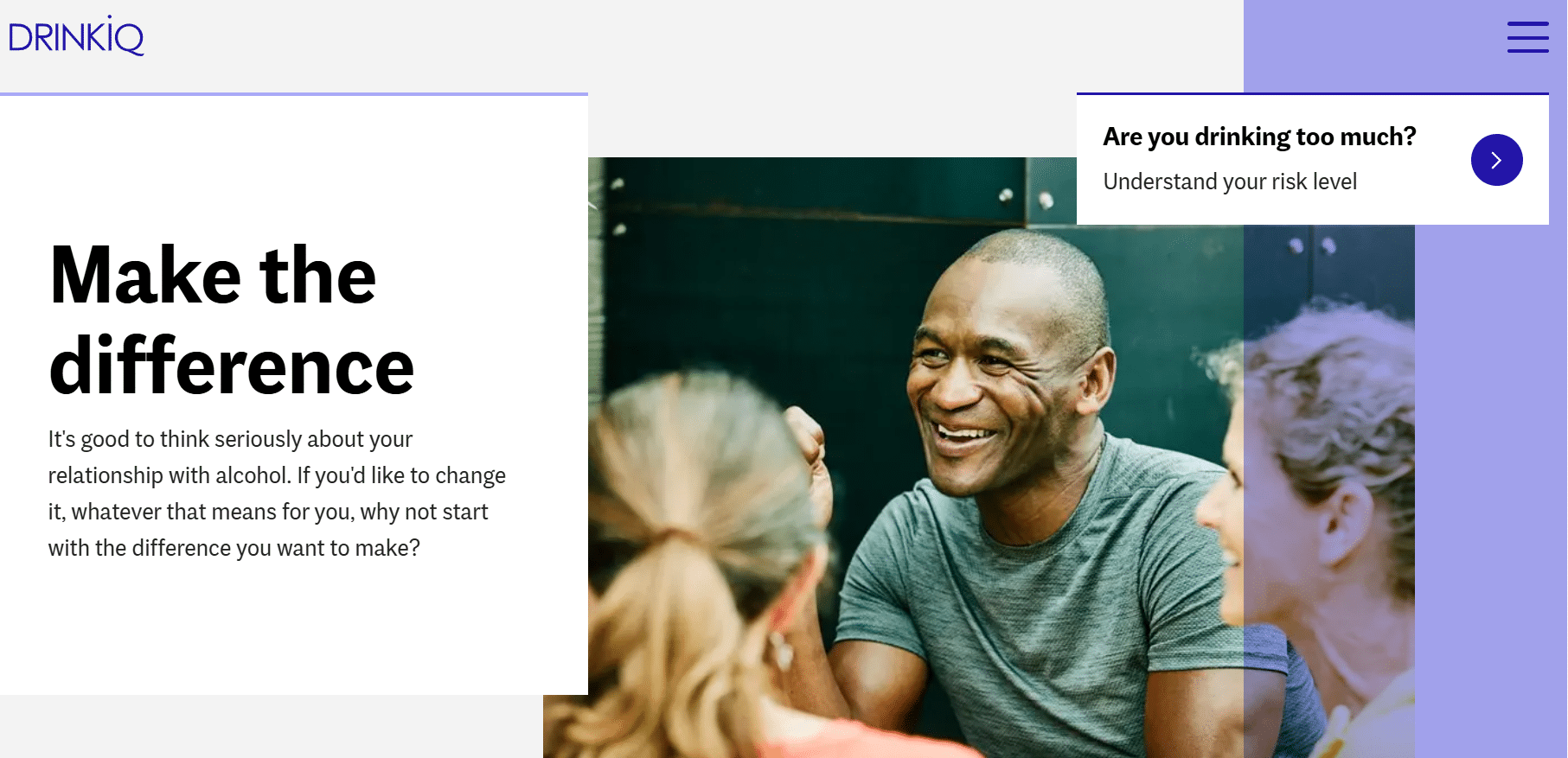
In 2009, Diageo caused outrage when it announced that it planned to close the Johnnie Walker production plant in Kilmarnock, Scotland. The move was likely to cost up to 700 people their jobs. A campaign was launched by local government leaders, but the plant eventually closed in 2012.
2010-2024: Diageo Expands and Invests at Home and Overseas
Diageo claims that its international presence is one of its key strengths and it has fuelled this globalization with acquisitions of drinks businesses around the globe, such as:
- Mey Icki, a Turkish liquor company, in 2011.
- Brazilian cachaça manufacturer Ypióca and India’s United Spirits Limited in 2012.
- Shares in Chinese baijiu company Sichuan Shuijingfang in 2013.
Diageo has continued to invest at home, too. With the Scotch whisky industry booming, in 2012, the company announced a £1 billion ($1.59 billion at the time) investment in Scotch whisky production over five years. The program would include the construction of a new distillery, the expansion of existing production facilities, and a 30-40% increase in production capacity.
Diageo CEO at the time, Paul Walsh, said: “We expect that success to continue, particularly in the high growth markets around the world, which is why we are announcing this major investment in Scotch whisky production, committing over £1bn in the next five years, to seize that opportunity for global growth.
“Scotch whisky is a significant manufacturing export industry in the United Kingdom, driving domestic investment and job creation through our success in exporting to high growth markets around the world.”
In 2013, Diageo became the sole investor in a new spirits industry accelerator, Distill Ventures. The organization was created to help founders start and scale innovative drinks brands across the globe. An example of the partnership in action was in 2015 when Diageo and Distill Ventures announced a £10 million ($15.3 million) investment in the small Danish whisky brand Stauning to support the company to increase production.
Paul Walsh also stepped down in 2013, to be replaced by Sir Ivan Menezes. He has been widely credited with transforming Diageo into the company we see today, with more than 200 brands sold across 180 countries. During Menezes’ tenure, Diageo’s market value increased from £42 billion to £75 billion.
In 2015, Diageo found itself at the center of a misguided marketing controversy when it launched a campaign showing a young woman crying after a night out. The caption read: “Who’s following in your footsteps? Out of control drinking has consequences”. The advert received criticism from the charity Rape Crisis Network Ireland which called it misogynistic and victim-blaming.

Diageo disposed of much of its beer and wine business in 2015, selling the Red Stripe brand and interests in several other breweries. It also sold much of its wine business to Treasury Wine Estates, with the remaining wine brands sold in 2019.
In 2017, Diageo added Casamigos, the fastest-growing premium tequila in the USA to its tequila category. Two years later, in 2019, Diageo bought more shares in Sichuan Shuijingfang taking its stake to around 70%. The company also acquired a majority stake in Seedlip, the first distilled non-alcoholic spirit in the world, strengthening its position in the alcohol-free market.
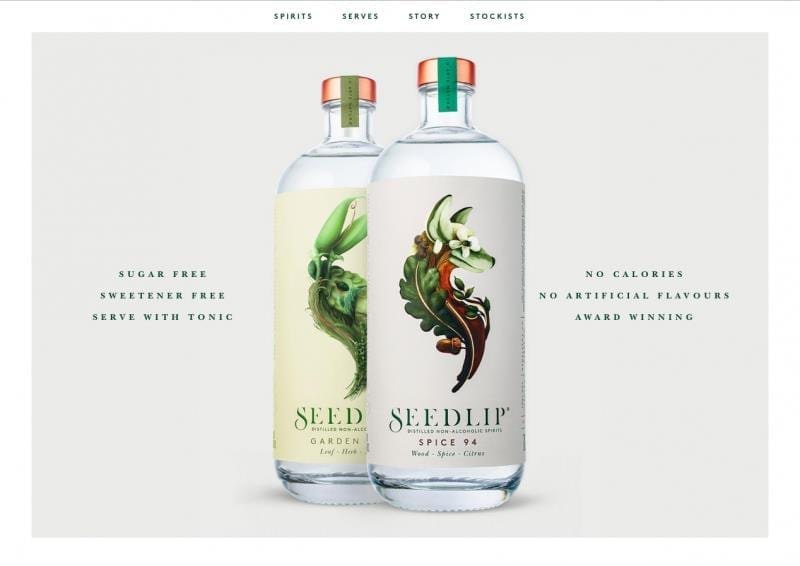
Also in 2017, Diageo was named as the world’s fifth most diverse and inclusive workplace in the Thomson Reuters Diversity and Inclusion Index. The only other drinks company to feature in the top 100 was PepsiCo.
Mairead Nayager, Diageo’s Human Resources Director at the time, said: “We are very proud that our commitment to diversity and inclusion continues to be recognized globally. At Diageo we celebrate diversity and strive to create an inclusive culture as this is both the right thing to do, and something that unlocks huge advantages for our business. We have made great progress, and I am particularly proud that 40% of our Board and Executive Committee are now women.”
Diageo revealed its 10-year corporate responsibility plan in 2020, through which it aims to create a more inclusive and sustainable world by:
- Promoting a positive role for alcohol.
- Championing inclusion and diversity.
- Preserving natural resources.
- Making a positive contribution to the communities in which it operates.
Also in 2020, the company acquired the premium brands Aviation Gin from Ryan Reynolds and Davos Brands to boost its presence in the super-premium gin segment in the USA.
Despite the global pandemic, 2021 was a busy year for the company. Diageo announced a $500 million investment in its tequila production in Mexico to help it meet rising demand. In the same year, Diageo purchased the British gin manufacturer Chase Distillery.
In 2021, Diageo also began the construction of a new carbon-neutral whisky distillery in Kentucky, the company’s first US distillery. Planned to be one of the biggest in North America, the site was designed to be fully powered by renewable electricity. The company also broke ground on a $75 million distillery in China.
Diageo also opened the doors of Johnnie Walker Princes Street, an eight-floor visitor experience in Edinburgh, Scotland in 2021. The tourist attraction is the centerpiece of Diageo’s planned £185 million ($255 million at the time) investment in Scotch whisky tourism in Scotland.
@whiskyamateur Johnnie Walker Whisky Experience Edinburgh, £28 for a 90minute experience. Expect an interesting and theatrical journey into whisky, this isn’t your typical whisky day out. For knowledgeable whisky drinkers you might find it a bit cheesy, but it’s a fun experience regardless. You’ll find it at the end of Princess Street (not princess!) Edinburgh, Scotland. #Edinburgh #johnniewalker #jwprincessst #whiskytour #Scotland #dram #singlemalt #princessst #edfringe #edfringe2022 #whiskey #highland #distillery
Sir Ivan Menezes said at the opening: “This is a proud day for everyone. Last year Johnnie Walker celebrated 200 years since founder John Walker opened the doors to his small grocery store and today represents the next chapter of the incredible story. Johnnie Walker Princes Street is a landmark investment in Scotch whisky and into Scotland and it sets a new standard for immersive visitor attractions.”
In 2022, Diageo moved its global headquarters to a central London location, leaving behind its previous Park Royal base which had been on the site of a former Guinness brewery. In the same year, Diageo announced that it was to acquire Balcones Distilling, a Texan whisky distiller, and the Australian cold brew coffee liqueur brand, Mr Black.
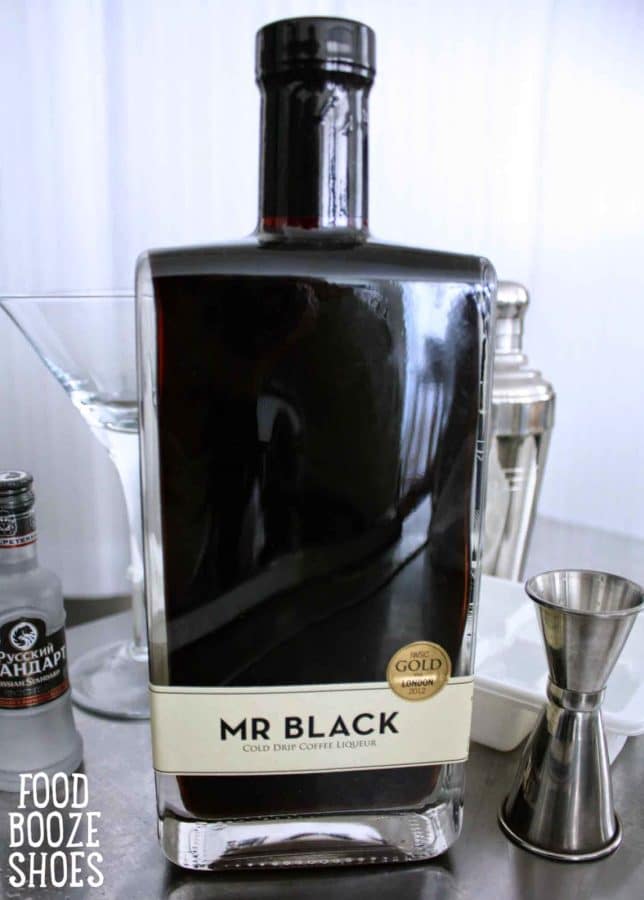
Diageo sold Windsor Global in 2023, which owns the blended Scotch whisky brand Windsor, to a South Korean private equity firm. Also in 2023, Diageo announced that Debra Crew would succeed Sir Ivan Menezes as CEO. Following his sudden death, Crew took to the helm a month earlier than planned. Just before Menezes’ death, Diageo announced financial support for the British Aluminium Consortium for Advance Alloys, aiming to build a recycling facility and support the development of a circular aluminum economy.
Diageo’s Brands
Diageo has over 200 brands which are sold in almost 180 countries around the globe. Diageo-owned brands include:
| Whisky | Other Spirits | Beer and Wine |
| Buchanan’s | Astral Tequila | Guinness |
| Crown Royal | Baileys Irish Cream | Justerini & Brooks |
| Grand Old Parr | Captain Morgan | |
| Haig Club | Casamigos | |
| J&B | Chase Distillery | |
| Johnnie Walker | Gordon’s | |
| Lagavulin | Tanqueray | |
| Talisker | Tequila Don Julio | |
| The Singleton | Smirnoff |
Diageo’s Stock & Dividend History
Diageo is listed on the London Stock Exchange with a secondary listing on the New York Stock Exchange. A history of the share price between 2019 and 2024 is below:
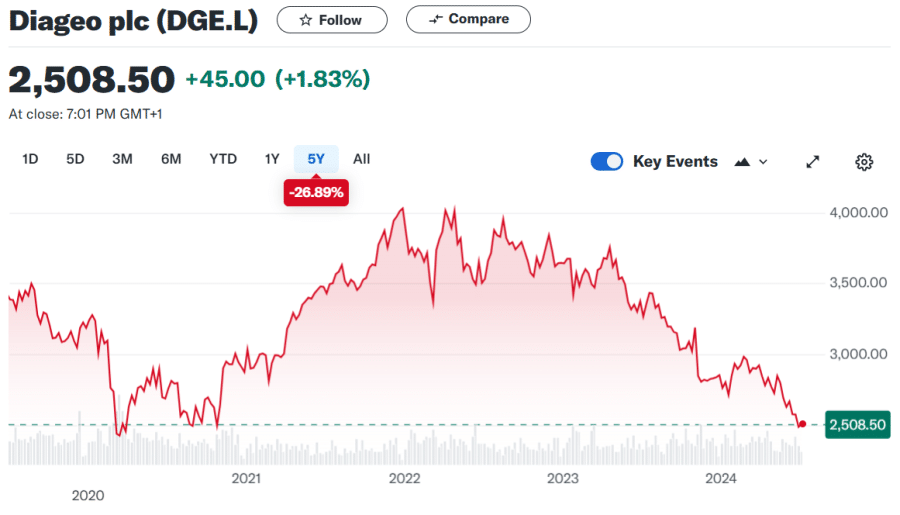
The company typically pays dividends twice a year. Here’s a list of the total annual dividend paid by Diageo over the past 10 years:
| Year | Diageo Dividend |
| 2013 | 47.4p |
| 2014 | 51.7p |
| 2015 | 56.4p |
| 2016 | 59.2p |
| 2017 | 62.2p |
| 2018 | 65.3p |
| 2019 | 68.57p |
| 2020 | 69.88p |
| 2021 | 72.55p |
| 2022 | 76.18p |
| 2023 | 80.0p |
History of the Diageo Logo
The Diageo logo relies on simplicity and elegance, which reflects key traits of the brand. The name Diageo was devised by Wolff Olins, a British marketing consultancy, in 1997. It has been suggested that the name’s meaning in Greek and Latin links to the company motto, which is “Celebrating life, every day, everywhere”.
Diageo is the parent company of more than 200 brands and the logo has been kept simple and clear as a result. The logo has remained unchanged since its launch in 1997.
The Future of Diageo
Since Diageo was formed in 1997, it has grown into a global powerhouse in Scotch whisky, beer, and other premium spirits. Over the years, Diageo has embraced innovation and sustainability, positioning itself for a future of strong growth.
More recently, the company has placed a focus on expanding its portfolio of well-known brands with a focus on premium and low-alcohol options and embracing technology to further drive customer engagement. With the low- and no-alcohol sector set to grow by a CAGR of 6% up to 2027, growing in the market is a savvy move that should contribute to the continued growth of the company.
As the industry evolves, Diageo looks set to lead the way with diversity-based initiatives and eco-friendly practices, aiming to meet changing consumer preferences and environmental challenges and ensure the business’s long-term success.
